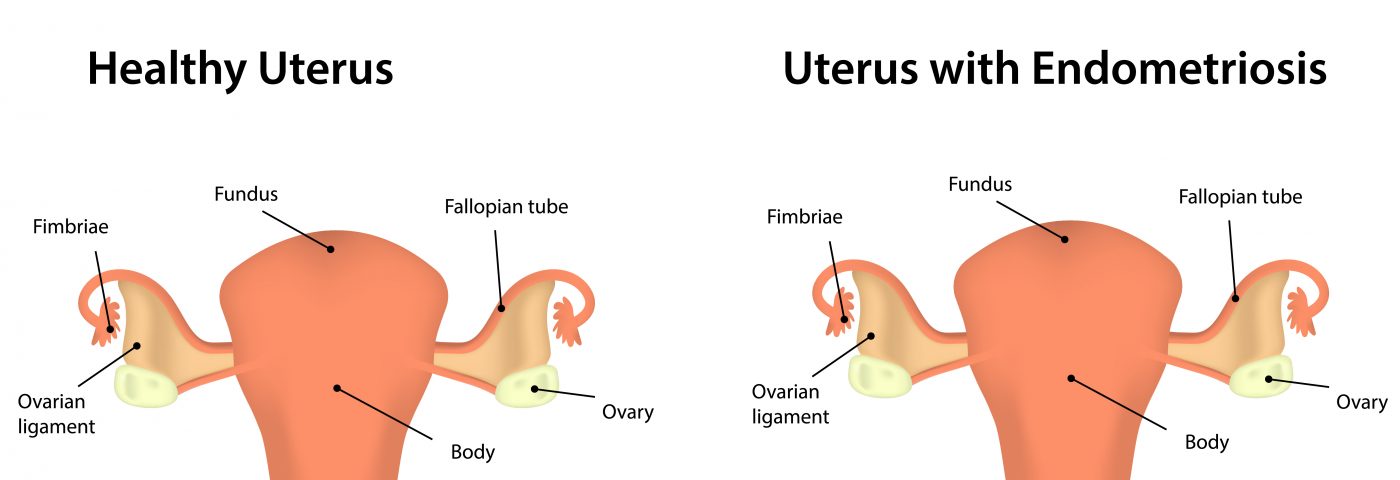Dinagest (dienogest) reduces pain intensity in women with deep infiltrating endometriosis (DIE). This effect was observed even without the reduction of the endometriotic lesions (nodules).
The study “Dienogest and deep infiltrating endometriosis: The remission of symptoms is not related to endometriosis nodule remission” was published in the European Journal of Obstetrics & Gynecology and Reproductive Biology.
On average, 10% of women of reproductive age are affected by endometriosis, the abnormal growth of endometrial tissue outside the uterus. In 20% of the cases, women are affected by a form of endometriosis known as DIE.
Women with DIE have different pain types: Dysmenorrhea (painful menstruation); chronic pelvic pain, and; dyspareunia (painful sexual intercourse). Available treatments include surgery to remove the abnormal tissue and medication to control pain.
Dinagest is a synthetic progestogen that helps to control patients’ pain. However, it remains unknown whether this drug also acts on the endometriosis lesions.
In this study, which included 30 women diagnosed with DIE, researchers evaluated pain symptoms, but also endometriotic lesions, before and after 12 months of Dinagest treatment.
Researchers found that when women were asked to evaluate pain, there was a significant improvement in dyspareunia, dysmenorrhea, pelvic pain, and bowel pain. After treatment, there was a six-fold reduction in average days of pain per month (six days to 0.73 days).
Researchers also monitored the endometriosis lesions volume by transvaginal sonography. They found no relation between remission of pain symptoms and reduction of the volume of DIE lesions (nodules) after treatment.
However, Dinagest’s beneficial effects may be due to its anti-inflammatory action. “We believe that is possible to assume that the improvement of pain symptoms may be related not only to the atrophy of ectopic endometrium [endometrium tissue outside the uterus], but mainly to the anti-inflammatory action or regulatory immune attributed to dienogest,” the research team wrote.
In this group of women, they did not find abnormal bleeding as a side effect. Importantly, Dinagest also had a positive impact on quality of life. Women reported a significant improvement in the physical, psychological quality of life and health.
Overall, the study supports the treatment with Dinagest in women with DIE. “Our results indicate that dienogest is a good alternative to the clinical management of pain symptoms in women with deep endometriosis, regardless of the change in volume of the lesions, thus avoiding surgical procedures of high complexity in all women studied,” the researchers concluded.

